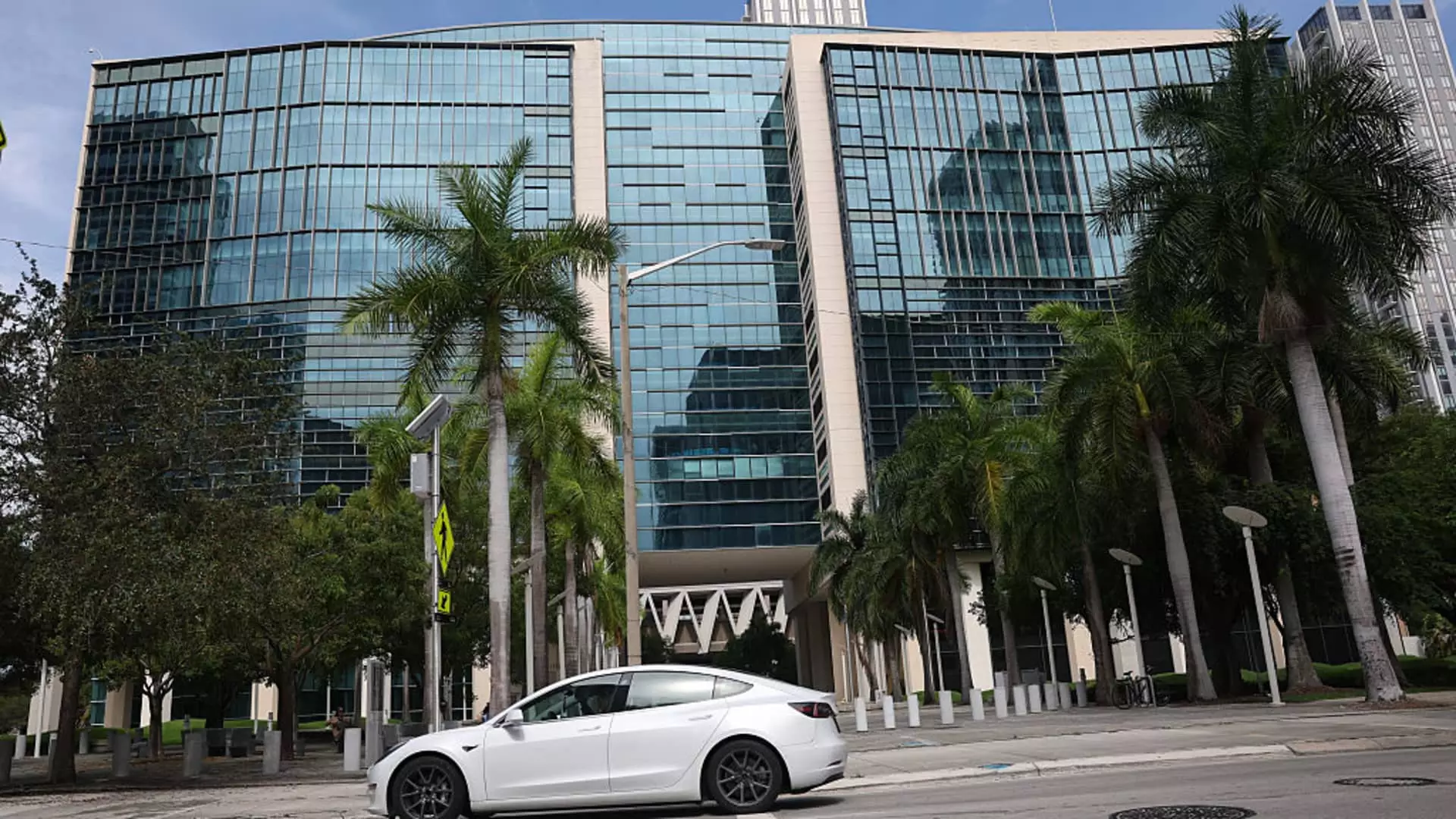The recent trial involving Tesla’s Autopilot system signals a pivotal moment in the ongoing debate about autonomous vehicle safety and corporate transparency. The fatal 2019 crash in Key Largo, Florida, where a young woman lost her life, serves as a stark reminder of the human costs that can be overlooked in the race for technological innovation. While Tesla and Elon Musk have long promoted Autopilot as a revolutionary step toward autonomous driving, this case exposes the darker truths beneath their marketing claims. The lawsuit isn’t merely about a tragic death; it questions whether Tesla’s narrative has been crafted to serve profit at the expense of genuine safety.
The plaintiffs’ demand for a staggering $345 million highlights their belief that Tesla’s actions—and inactions—warrant significant repercussions. This figure is not just an arbitrary number; it symbolizes outrage towards perceived corporate recklessness. The stakes extend beyond one accident—they challenge the very foundation of how advanced driver-assistance systems are marketed, understood, and regulated. The tragedy in Key Largo becomes a case study for scrutinizing whether tech giants like Tesla prioritize image and shareholder interests over rigorous safety standards.
Autopilot: A Promised Future or a Dangerous Illusion?
Tesla’s branding of Autopilot as a semi-autonomous system is arguably its most powerful marketing tool, but it is also this very branding that raises critical safety concerns. The lawsuit accuses Tesla of overstating Autopilot’s capabilities, creating a false sense of security among users. The claim that drivers could rely on the system without fully understanding its limits is deeply troubling. The fact that the driver, George McGee, believed his car would brake if an obstacle appeared illustrates a dangerous misperception fostered—intentionally or not—by Tesla’s promotional narratives.
The court proceedings reveal a disturbing pattern: Tesla’s promotion of Autopilot may have been more focused on pushing sales and market dominance than ensuring driver safety. Elon Musk’s statements about fully autonomous vehicles have, at times, borders on overconfidence—creating a corporate myth that Autopilot is more capable than it truly is. This dissonance between marketing and reality fuels a culture of complacency among drivers who are misled about their vehicle’s abilities. The underlying issue is whether Tesla has a moral obligation to clearly communicate system limitations, especially when human lives are at stake.
The Legal and Ethical Crossroads
The legal arguments in this case open a broader discussion about corporate responsibility and regulatory oversight. Tesla, which has historically settled many Autopilot-related lawsuits quietly, now faces a rare public courtroom battle that could reshape industry standards. The judge’s remark about Tesla potentially acting’s in reckless disregard of human life’ underscores the gravity of the allegations. If proven true, this could set a significant legal precedent, compelling automakers to adopt stricter safety protocols and transparent marketing practices.
From an ethical perspective, this case challenges the narrative that technological progress inherently equates to safety. The push for automation must be matched with an equally powerful commitment to rigorous testing, transparent communication, and accountability. The broader societal question looms: are we rushing headlong into a future where automation becomes a cheap substitute for diligent safety measures, or are we truly prioritizing human lives?
The Future of Autonomous Vehicles and Public Trust
This lawsuit signifies more than just a courtroom drama; it is a confrontation with public trust in the rapidly evolving world of autonomous vehicles. As Tesla and other manufacturers strive to dominate the market, they must grapple with the reality that safety cannot be compromised for growth. The case’s outcome could influence policies, regulations, and consumer perceptions worldwide.
Tesla’s internal culture, which often seems driven by innovation at all costs, is now under scrutiny. Can the company reconcile its ambition with the moral imperative of safety? Elon Musk’s visionary promises can no longer serve as free passes; they demand accountability. If the court finds Tesla negligent or reckless, it will send a powerful message: technological advances must be matched with responsible corporate conduct. There is a pressing need for industry-wide standards that prevent companies from overstating their capabilities and putting human lives at risk.
This trial emphasizes the importance of critical oversight and the dangers of corporate hype. Advanced driver-assistance systems should be seen not as a shortcut to effortless driving, but as tools that require cautious, informed use. Otherwise, we risk accepting a future where convenience and profit eclipse safety and integrity.
Ultimately, Tesla’s Autopilot saga exposes the tension between innovation and responsibility—a tension that must be resolved before autonomous vehicles become a genuinely trusted and safe transportation mode, or else society risks repeating history’s tragic missteps.

